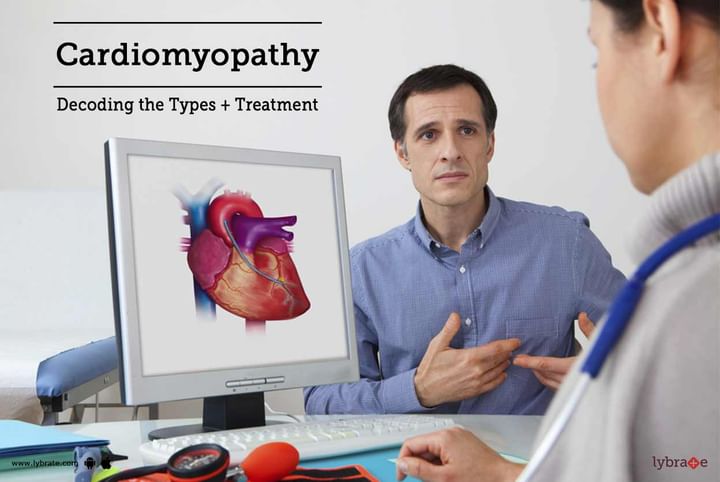Cardiomyopathy - Decoding the Types + Treatment
The heart muscle is the central pumping machine that ensures that blood flow throughout the body is maintained and all other organs have a regular supply. One of the conditions that can cause this organ to malfunction is cardiomyopathy, wherein the heart is unable to pump the blood to all parts of the body. This condition can even lead to heart failure and is something that needs to be addressed and diagnosed quickly.
Symptoms of Cardiomyopathy
Early stages of cardiomyopathy may be difficult to detect externally, although it may be slowly reducing your heart’s capacity. Symptoms that start showing in later stages may include:
- Constant fatigue, even without physical activity
- Fluid may build up and thus cause bloating within the body
- Persistent coughing while lying down
- You may have irregular heartbeats that may sometimes be quite rapid
- Due to the lack of blood supply, you may feel lightheaded, dizzy and might even cause you to faint
- Even the slightest of exertions will cause breathlessness and exhaustion and you may even feel this symptom while at rest
- Intermittent chest pain
Causes of Cardiomyopathy
Causes of this condition may vary from patient to patient, although certain common factors include:
- Genetic reasons where one or both parents are susceptible to this condition
- Metabolic problems such as obesity, diabetes or thyroid problems
- Substance abuse such as anabolic steroids, amphetamines cocaine or even the consumption of excessive alcohol
- High blood pressure for prolonged periods
- Nutritional deficiencies
- Side effects of drug treatments such as the use of certain chemicals in chemotherapy
Types of Cardiomyopathy
Cardiomyopathy has multiple types; depending on what causes them and also certain specific symptoms. These are:
- Restrictive cardiomyopathy
- Dilated cardiomyopathy
- Arrhythmogenic right ventricular dysplasia
- Hypertrophic cardiomyopathy
- Unclassified cardiomyopathies
Treatment for cardiomyopathy
The treatment of these various forms of cardiomyopathy will vary depending on the type and also the stage and condition of the heart. Some of these treatments include:
- Medications
- Lifestyle changes
- Surgeries such as Septal myectomy, Septal ablation and Radiofrequency ablation
- Implantable devices such as Implantable cardioverter-defibrillator or ICD
- Ventricular assist devices
- Heart transplant in the worst case scenarios. If you wish to discuss about any specific problem, you can consult a Homeopath.



+1.svg)
